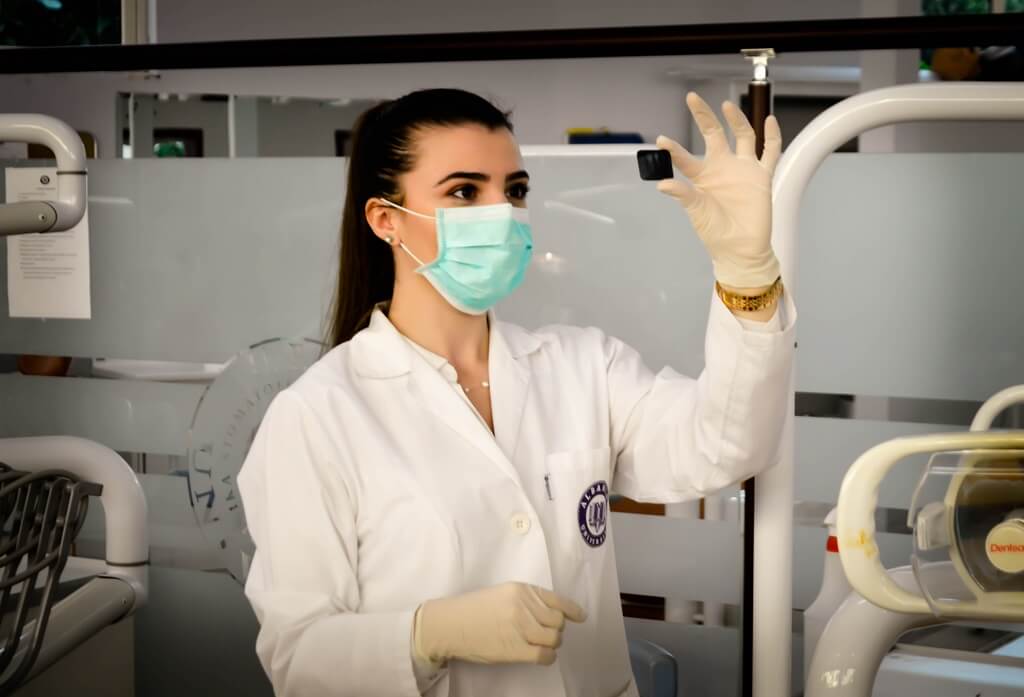Supplying safe drinking water to your family is one of the most important
aspects of being prepared, even for day to day life. Thankfully, there are many places to buy residential water
treatment options. From contacting local experts, to researching online, you can rest assured there are many
choices available. Even if you simply head over to your home improvement store, you will soon be met with a
plethora of certified water filters.
aspects of being prepared, even for day to day life. Thankfully, there are many places to buy residential water
treatment options. From contacting local experts, to researching online, you can rest assured there are many
choices available. Even if you simply head over to your home improvement store, you will soon be met with a
plethora of certified water filters.
You may wonder, how can you be sure the water filter you have purchased is
not only effective, but also safe? While some types of filter media are efficient at removing or reducing
contaminants that cause unpleasant tastes and smells, many are scentless or tasteless. This may make you feel
uncomfortable in regard to your home tap water, but this is where water filter certifications come into play.
not only effective, but also safe? While some types of filter media are efficient at removing or reducing
contaminants that cause unpleasant tastes and smells, many are scentless or tasteless. This may make you feel
uncomfortable in regard to your home tap water, but this is where water filter certifications come into play.
Independent organizations put together a whole slew of rigorous water filter tests, in order to prove overall efficiency. Each
certification also ensures manufacturer claims hold
true,
especially in residential settings, for a variety of circumstances. While these certifications categorize water
filters for the type of contaminants they remove, the certifications also prove which manufacturers are worth
the investment.
certification also ensures manufacturer claims hold
true,
especially in residential settings, for a variety of circumstances. While these certifications categorize water
filters for the type of contaminants they remove, the certifications also prove which manufacturers are worth
the investment.
The Health & Safety Concerns of Water Filtration
Home owners face a wide range of issues, especially in terms of residential
water treatment. Depending on the contaminants and minerals present in your tap water, it may pose dangers to
your health, in addition to appliances, pipes, and more. Lime scale, for example, is the result of high
levels
of calcium, which may easily build up inside of dishwashers or electric kettles, and water heaters. As the lime
scale builds up, the efficiency of heating coils in dishwashers or water heaters is significantly decreased.
While these elements are easily replaced, the situation is also easily avoided, by utilizing appropriate water
filtration measures.
water treatment. Depending on the contaminants and minerals present in your tap water, it may pose dangers to
your health, in addition to appliances, pipes, and more. Lime scale, for example, is the result of high
levels
of calcium, which may easily build up inside of dishwashers or electric kettles, and water heaters. As the lime
scale builds up, the efficiency of heating coils in dishwashers or water heaters is significantly decreased.
While these elements are easily replaced, the situation is also easily avoided, by utilizing appropriate water
filtration measures.
Primary Contaminates are another consideration, especially those that
commonly travel throughout the water supply. Science has proven various elements to be harmful when regularly
consumed, and even the EPA created laws in regard to said contaminants for overall safety. Today, however, there
are numerous instances of health issues derived directly from water sources. Arsenic, lead, and even nitrates
have been proven to cause detrimental health effects, and remain undetectable to the senses. This is where a
water filtration system is allowed to shine, especially for areas concerning Primary Contaminate
commonly travel throughout the water supply. Science has proven various elements to be harmful when regularly
consumed, and even the EPA created laws in regard to said contaminants for overall safety. Today, however, there
are numerous instances of health issues derived directly from water sources. Arsenic, lead, and even nitrates
have been proven to cause detrimental health effects, and remain undetectable to the senses. This is where a
water filtration system is allowed to shine, especially for areas concerning Primary Contaminate
Who Issues Water Filter Certifications?
Very specific organizations have labs that are accredited by ANSI/NSF
certifications. These laboratories provide water filtration systems with certifications.
certifications. These laboratories provide water filtration systems with certifications.
- NSF International focuses on the development of public health standards, and certifications designed to
protect the environment, consumer products, food, and water. - The IAPMO, or International Association of Plumbing and Mechanical Officials was founded in 1929. They
began both the Energy Star and Water Sense program, in order to create and maintain guidelines in regard
to products that conserve energy and
water. - Founded in 1974 the WQA, or Water Quality Association, is a non-profit organization. Credited with
creating the Gold Seal Certification Program, the WQA continues to certify water filtration products. - Underwriters Laboratories, or UL, was first established in
1894. Since then, UL has continued offering a
wide range of services, catered around assisting companies with the most responsible design, production,
marketing and purchase of goods, solutions, and innovations.

What Ensures a Company Maintains Testing & Certification?
In order to verify the legitimacy of product certification and testing,
simply take a visit to the website of the responsible laboratory. From there, you can look further into the test
results, and certification for whatever product was tested. Since numerous labs are responsible for said
certifications, such as those listed above, the specific website you may need to visit will vary. Conducting
your research into testing and certification is another aspect of deciding which water filtration system is the
best option for your household. This may quickly become a frustrating or overwhelming process. With that in
mind, which water purification unit should you buy?
simply take a visit to the website of the responsible laboratory. From there, you can look further into the test
results, and certification for whatever product was tested. Since numerous labs are responsible for said
certifications, such as those listed above, the specific website you may need to visit will vary. Conducting
your research into testing and certification is another aspect of deciding which water filtration system is the
best option for your household. This may quickly become a frustrating or overwhelming process. With that in
mind, which water purification unit should you buy?
Waterdrop G3 RO Reverse Osmosis
Waterdrop’s G3 RO water purification unit features NSF 58 certification, for
an overall reduction in TDS. The use of Reverse Osmosis technology features a 0.0001μm effectively removes
fluoride, limescale, heavy metal, and TDS contaminants. Furthermore, the Waterdrop G3 was also presented with an
NSF 372 certification for utilizing lead-free materials.
an overall reduction in TDS. The use of Reverse Osmosis technology features a 0.0001μm effectively removes
fluoride, limescale, heavy metal, and TDS contaminants. Furthermore, the Waterdrop G3 was also presented with an
NSF 372 certification for utilizing lead-free materials.
The Waterdrop G3 is one of the United States market’s first smart RO system
featuring composite filters, as well as a tankless design. Three filters provide 7 stages of water filtration,
as well as a pre-sediment and carbon block. An activated carbon block filter utilizes activated carbon granules
derived from natural coconut shell materials, for an improved overall taste and odor. The new composite filter
element technology enables RO systems to be more efficient at filtering out harmful contaminants and substances.
Their tankless design also helps homeowners in avoiding a secondary pollution, in addition to an increase in
kitchen space.
featuring composite filters, as well as a tankless design. Three filters provide 7 stages of water filtration,
as well as a pre-sediment and carbon block. An activated carbon block filter utilizes activated carbon granules
derived from natural coconut shell materials, for an improved overall taste and odor. The new composite filter
element technology enables RO systems to be more efficient at filtering out harmful contaminants and substances.
Their tankless design also helps homeowners in avoiding a secondary pollution, in addition to an increase in
kitchen space.
Aquaboon 20” x 4.5” 3-Stage Whole House Water Filter
The Aquaboon whole house water filter provides three stages of water
filtration, in a 20” system. Offering two different cartridge styles, the Aquaboon system removes contaminants
such as rust, clay particles, sand grains, and more for anywhere between 4 to 6 months. The subsequent filter
stages have their own role to play, through the use of activated caron cartridges. These filters absorb
pesticides, herbicides, organic chemicals, and much more. In turn, this whole house water filter system will go
great lengths in protecting your family from dangerous contaminants.
filtration, in a 20” system. Offering two different cartridge styles, the Aquaboon system removes contaminants
such as rust, clay particles, sand grains, and more for anywhere between 4 to 6 months. The subsequent filter
stages have their own role to play, through the use of activated caron cartridges. These filters absorb
pesticides, herbicides, organic chemicals, and much more. In turn, this whole house water filter system will go
great lengths in protecting your family from dangerous contaminants.
AO Smith 4-Stage Reverse Osmosis Water Filter System
The AO Smith 4-Stage RO Water Filter System effectively reduces up to 99% of
countless contaminants for maximum filtration. This includes fluoride, chromium, lead, asbestos, pesticides, and
much more. Additionally, this RO system includes a remineralization stage for the healthiest drinking water
possible. With traditional Reverse Osmosis systems, tap water is stripped of vital minerals. Thanks to
remineralization technology, this issue is now a thing of the past. This full system also provides NSF certified
to standards 42, 53, 58, 401, and P473.
countless contaminants for maximum filtration. This includes fluoride, chromium, lead, asbestos, pesticides, and
much more. Additionally, this RO system includes a remineralization stage for the healthiest drinking water
possible. With traditional Reverse Osmosis systems, tap water is stripped of vital minerals. Thanks to
remineralization technology, this issue is now a thing of the past. This full system also provides NSF certified
to standards 42, 53, 58, 401, and P473.
